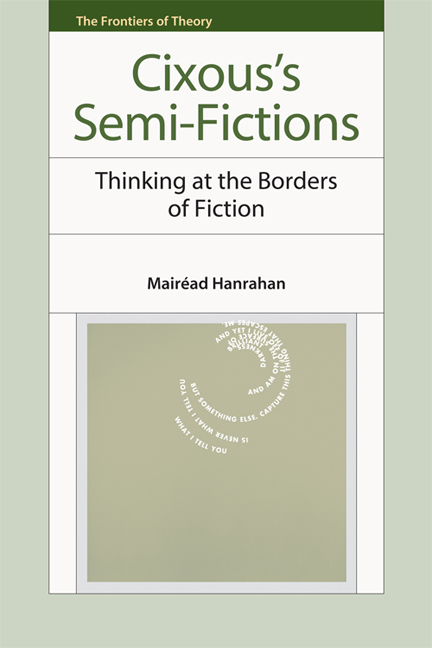Book contents
5 - Vital Tragedy? Déluge
Published online by Cambridge University Press: 05 August 2016
Summary
‘I live the tragic, I live myself tragically, I am totally occupied by the question of the tragic’: tragedy has always been at the root and heart of Hélene Cixous's work. As we saw with regard to Dedans, the loss of her father while she was only ten years old was a personal tragedy to which, for many years, she ascribed the motive force of her writing. Moreover, text after text suggests that her experience of political tragedy at an even earlier age was just as formative. Born in Algeria in 1937 to Jewish parents, her mother having read the signs of Nazi Germany early enough to leave it for Paris where she met Cixous's father, the author grew up in an environment profoundly marked by two of the tragedies that deeply scarred the twentieth century: the massacre of European Jewry and the violence and brutality of colonial Algeria. As Cixous comments in an interview: ‘I was born political, in a sense, and it was even for political reasons that I began to write poetry as a response to the political tragedy.’
What interests me particularly in this last statement is how Cixous inflects the discussion of tragedy towards a discussion of genre. Historically, the notion of tragedy is of course inseparable from the question of genre. The term emerged in Ancient Greece to describe a particular kind of drama, although in modern use the term is applied more frequently to ‘real’ events than to literary forms. Today, however, as Adrian Poole remarks, the word is ubiquitous in news coverage. Cixous's theatre is undoubtedly tragic in this contemporary sense. The large-scale plays she wrote for Ariane Mnouchkine's Théâtre du Soleil remember for the most part political, historical calamities: the Cambodian genocide in L'Histoire terrible mais inachevée de Norodom Sihanouk, Roi du Cambodge; the combat from which arose the Partition of the Indian sub-continent in L'Indiade ou l'Inde de leurs rêves; the contaminated blood scandal in which hundreds of French hamophiliacs lost their lives due to the venality of the doctors in charge of the blood transfusion service in La Ville parjure. While not referring to a specific historical event in the same way, Tambours sur la digue offers an allegory of misgovernment and corruption with broad socio-political implications.
- Type
- Chapter
- Information
- Cixous's Semi-FictionsThinking at the Borders of Fiction, pp. 127 - 156Publisher: Edinburgh University PressPrint publication year: 2014



